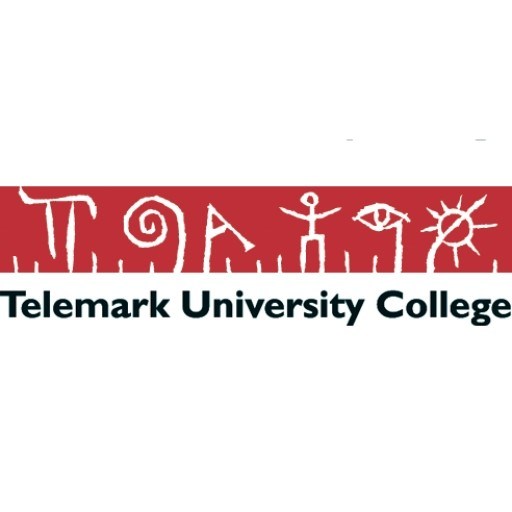Photos of university / #nhh_no
The MSc in Energy, Natural Resources and the Environment at the Norwegian School of Economics offers a comprehensive and interdisciplinary education designed to equip students with the critical skills and knowledge necessary to address the complex challenges facing the global energy sector and natural resource management. This programme emphasizes the economic, environmental, and social aspects of sustainable development, providing students with a deep understanding of how energy production, resource utilization, and environmental considerations intersect within local and international contexts. Students will explore core topics such as energy markets, renewable energy sources, environmental policy, resource economics, climate change mitigation, and sustainable development strategies. The programme also incorporates advanced analytical tools and modelling techniques used in policy analysis, resource assessment, and energy system optimization, preparing graduates for careers in public policy, private industry, international organizations, or research institutions. Through a combination of theoretical coursework, case studies, and practical projects, students gain valuable insights into the regulatory frameworks, technological innovations, and economic principles influencing the energy and environmental sectors. The programme fosters a global perspective, encouraging students to understand and contribute to solutions in diverse regional and international settings, with an emphasis on sustainable use and management of natural resources. Collaboration with industry partners and participation in real-world projects enhance practical skills and networking opportunities, preparing graduates for leadership roles in energy companies, governmental agencies, environmental organizations, or consulting firms. Upon completion, students will be equipped to analyze and develop strategies for sustainable resource management, energy efficiency, and environmental protection, contributing positively to society’s transition towards a resilient, low-carbon future.
The Master’s programme in Energy, Natural Resources and the Environment at the Norwegian School of Economics offers students a comprehensive understanding of the economic, managerial, and policy aspects related to natural resources and environmental management. This programme is designed for individuals interested in tackling some of the most pressing global challenges, including sustainable development, climate change, resource management, and energy transitions. Throughout the programme, students will gain a solid foundation in economics, policy analysis, and environmental sustainability, enabling them to develop innovative solutions for efficient resource utilization and environmental protection.
The curriculum combines theoretical knowledge with practical skills, including quantitative methods, economic modeling, and case studies. Students will explore various topics such as renewable energy policies, environmental regulations, resource economics, and energy markets. The programme emphasizes the importance of interdisciplinary approaches, integrating insights from economics, environmental science, and political science to understand the complex interactions between natural resources and societal needs.
In addition to core courses, students have the opportunity to specialize in areas like renewable energy, resource management, or environmental policy, tailoring their education to their interests and career goals. The programme also includes opportunities for internships, projects, and collaboration with industry and public sector organizations, providing valuable real-world experience. Students are encouraged to develop critical thinking and analytical skills that will prepare them for leadership roles within the energy and environmental sectors.
Graduates of this programme will be well-equipped to work in governmental agencies, consulting firms, international organizations, or private companies focused on sustainable development, energy solutions, and resource management. With a solid academic foundation and practical experience, students will be able to contribute effectively to shaping policies and strategies that promote sustainability and responsible resource use across various sectors. The programme emphasizes a global perspective, addressing issues relevant to both Norway and the international community, preparing students to work in diverse environments and cultural contexts.
Financing for the Master's programme in Energy, Natural Resources and the Environment at Norwegian School of Economics is primarily based on a combination of student loans and grants provided by the Norwegian government through the Norwegian State Educational Loan Fund (Lånekassen). International students from the EU/EEA regions generally do not qualify for these financial support schemes and are responsible for funding their studies through personal resources, scholarships, or external funding sources. The tuition fees for non-EU/EEA students are set at a fixed rate, which students must cover themselves, while students from within the EU/EEA pay no tuition fees at Norwegian public institutions. Students are encouraged to explore various funding options, including scholarships offered by the university, external grants from governmental or private entities, and work opportunities, where permitted, to support their financial needs during their studies. The programme's relatively short duration of two years allows students to plan their finances accordingly, taking into account living expenses in Bergen, which is generally considered affordable compared to other European cities. The university offers financial advisory services to assist students in applying for loans and grants, as well as guidance on budgeting and work opportunities. International students may also consider employer sponsorships or scholarships from organizations in their home countries that support studies abroad. Overall, students should prepare a detailed financial plan before commencing the programme, ensuring adequate funding to cover tuition (if applicable), housing, food, transportation, and personal expenses. The Norwegian government’s commitment to accessible education means that domestic students benefit from substantial financial support, making higher education in Norway highly affordable for residents. External funding sources, such as Erasmus+ scholarships for students from participating countries, may also be available depending on the student's national affiliation. It is essential for prospective students to research the latest funding opportunities and application deadlines early in their planning process to secure necessary financial resources for successful completion of the programme.
The Master of Science in Energy, Natural Resources and the Environment at the Norwegian School of Economics (NHH) is a comprehensive program designed to prepare students for the complex challenges facing the global energy sector, natural resources management, and environmental sustainability. This program aims to develop strong analytical, managerial, and technical skills applicable across various industries, including oil and gas, renewable energy, environmental consultancy, and policy-making. Students gain a deep understanding of the economic, technological, and policy issues associated with the sustainable management of natural resources and energy production. The curriculum emphasizes economic analysis, policy evaluation, environmental economics, and sustainable development, offering a multidisciplinary approach that combines economics, environmental science, and engineering principles. Students have opportunities to participate in case studies, practical projects, and collaborations with industry partners, providing real-world insights and experiences. The program prepares graduates for careers in government agencies, international organizations, private companies, and consultancy firms working on energy projects, environmental protection, and resource management. Focus areas include climate change policies, renewable energy sources like wind and solar power, transition to low-carbon economies, and governance of natural resources. The program also develops communication skills necessary for effective advocacy and policy implementation. Emphasis is placed on sustainability, innovation, and the economic implications of resource use, enabling students to contribute to sustainable development initiatives worldwide. Graduates often pursue roles related to policy analysis, strategic planning, environmental impact assessment, and energy market regulation. The program typically involves coursework, seminars, and potential research projects or thesis work, supporting a robust academic and practical training foundation. Students benefit from NHH’s strong connections with industry and policymakers, which facilitate internships and networking opportunities. The overall objective of the program is to equip future leaders with the knowledge and skills necessary to promote sustainable and efficient management of energy and natural resources in a rapidly changing global landscape.




